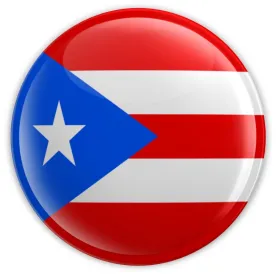Employers with Puerto Rico operations should be aware that, with some minor income tax-related twists, the emergency paid leave provisions of the recently enacted the Families First Coronavirus Response Act (FFCRA) equally apply in Puerto Rico.
Generally, the FFCRA requires private employers with fewer than 500 employees to provide paid leave, as follows:
-
Two weeks (up to 80 hours) at the employee’s regular rate of pay (up to $511 per day and $5,110 in the aggregate) to an employee unable to work due to being quarantined (pursuant to federal, state, or local government order, or advice of a health care provider), and/or experiencing COVID-19 symptoms and seeking a medical diagnosis; or
-
Two weeks (up to 80 hours) at two-thirds the employee’s regular rate of pay (up to $200 per day and $2,000 in the aggregate) to an employee unable to work because of a bona fide need to care for an individual subject to quarantine (pursuant to federal, state, or local government order, or advice of a health care provider), and/or to care for a child (under 18 years of age) whose school or childcare provider is closed or unavailable for reasons related to COVID-19; and
-
Up to an additional 10 weeks at two-thirds of the employee’s regular rate of pay (up to $200 per day and $10,000 in the aggregate) to an employee employed for at least 30 calendar days who is unable to work due to a bona fide need for leave to care for a child whose school or childcare provider is closed or unavailable for reasons related to COVID-19.
Employers are eligible for a full reimbursement of amounts paid to employees on paid leave, plus amounts the employer paid or incurred to maintain the employees’ health insurance coverage during the leave period. This reimbursement is obtained through an immediate dollar-for-dollar tax credit or offset against federal payroll taxes (i.e., the employer gets to keep amounts that otherwise would be paid to the Internal Revenue Service (IRS) in payroll taxes).
The federal payroll taxes available for this credit are federal income taxes withheld on employee wages, the employee share of Social Security and Medicare taxes, and the employer share of Social Security and Medicare taxes with respect to all employees, including those not on paid leave. If the employer’s federal payroll taxes are insufficient to cover the cost of paid leave and related healthcare coverage, the employer can get the difference by requesting an expedited advance from the IRS through the filing of a streamlined claim form soon to be issued by the IRS.
Because the FFCRA incorporates by reference several terms, rules, and definitions of the Family and Medical Leave Act, Fair Labor Standards Act, and Federal Insurance Contributions Act (FICA), all of which apply in Puerto Rico, it is clear that employers operating in Puerto Rico are subject to the FFCRA’s paid leave requirements and therefore are eligible for the related federal tax credits. However, because of the particular interplay between United States and Puerto Rico tax laws, the FFCRA’s operation in Puerto Rico is slightly different than in the United States.
The wages of Puerto Rico employees are subject to FICA taxation (Social Security and Medicare) and Puerto Rico income taxation, but are generally exempt from federal income taxation. Therefore, unless an employer also has employees in the United States, the employer will have to recover amounts paid to Puerto Rico employees on paid leave through either an offset of the employer and employee shares of FICA taxes or an advance from the IRS, but not through an offset of federal income taxes on payroll, because such federal income taxes are not being withheld.
To date, the Puerto Rico Treasury Department (commonly known as “Hacienda” or Departamento de Hacienda de Puerto Rico) has not adopted a rule or program allowing for the reduction of Puerto Rico income taxes for amounts paid to Puerto Rico employees on paid leave or exempting such amounts from Puerto Rico income taxation on wages. Thus, amounts paid to Puerto Rico employees on paid leave remain subject to the withholding of Puerto Rico income taxes on wages, and such taxes must be timely deposited with Hacienda. The employer share of healthcare premiums for Puerto Rico employees on paid leave, however, is statutorily exempt from Puerto Rico income taxation.
To prevent employers from receiving double federal tax benefits on account of the amounts paid to employees on paid leave, the FFCRA requires employers to include within their gross income subject to federal taxation the payroll tax credits or offsets resulting or related to such amounts. That is, paid leave amounts are deducted as a compensation expense, but the corresponding tax credit is added to the employer’s gross income, which essentially cancels the compensation deduction. Employers engaged in trade or business in Puerto Rico, but not in the United States, are subject to the payment of Puerto Rico income taxes, but are generally exempt from the payment of federal income taxes. In their Puerto Rico tax return, these employers may be able to deduct paid leave amounts as a compensation expense. However, since the Puerto Rico tax laws do not require that FFCRA tax credits or offsets be included within an employer’s gross income subject to local taxation, Puerto Rico employers may be able to get double local tax benefits on account of the amounts paid to employees on paid leave subject to the FFCRA.




 />i
/>i

